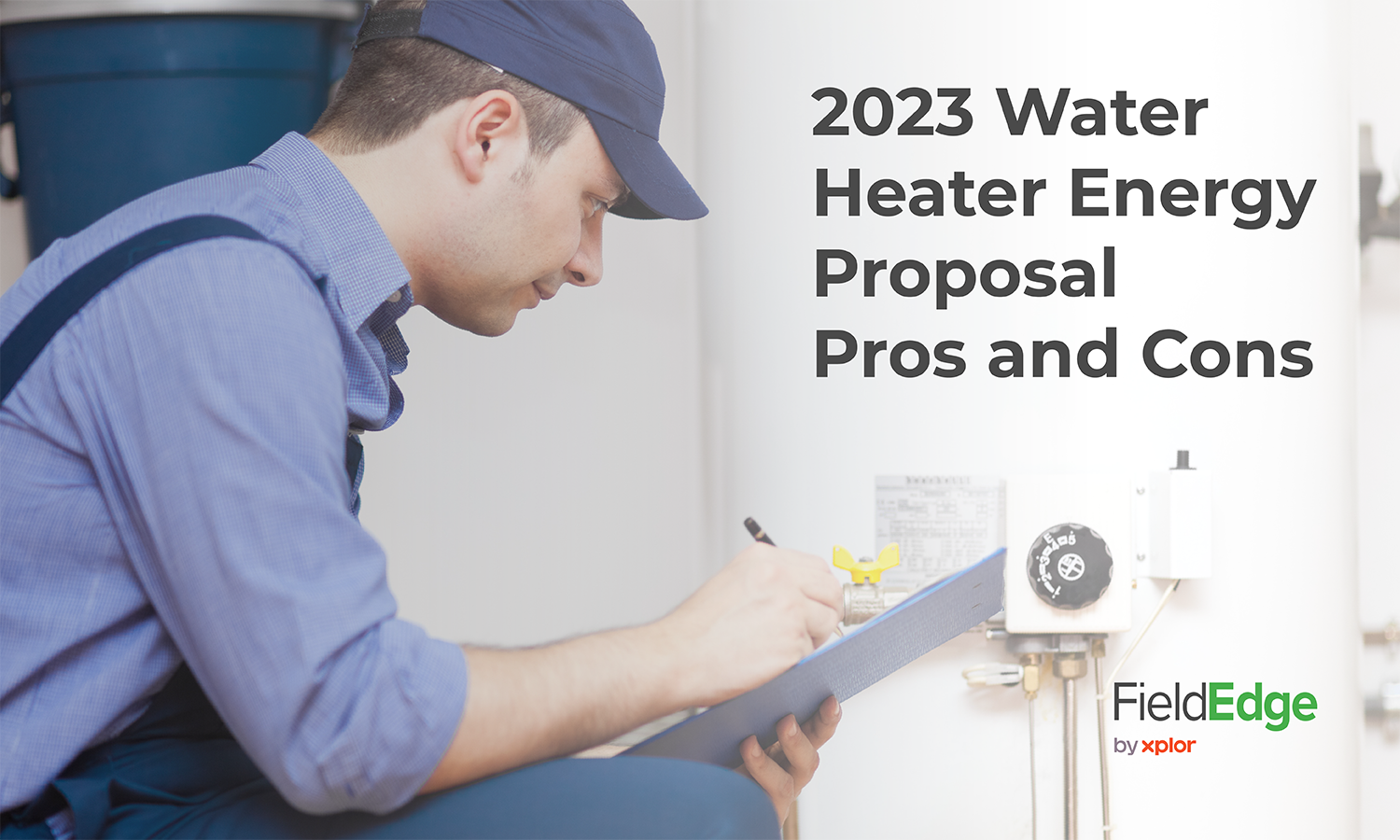The new 2023 Water Heater Energy Proposal has garnered significant attention as a bold initiative aimed at promoting energy efficiency and reducing carbon emissions.
While the proposal’s intent to create a greener future is commendable, there are legitimate concerns about its potential impact on consumers.
In this article, we will look at both sides of the 2023 Water Heater Energy Proposal to make sure you’re up to date on this important piece of legislation.
After reading this article you’ll discover everything you need to know about the 2023 Water Heater Energy Proposal:
- When this proposal could go into effect
- The particulars of the new regulations
- How heat pump technology is more efficient
- The pros and cons of the proposal
Understanding the Proposal
The new 2023 Water Heater Energy Proposal is a comprehensive plan put forth by the U.S. Department of Energy. The idea behind it is to accelerate the adoption of energy-efficient water heaters across the nation.
The initiative’s primary goal is to reduce greenhouse gas emissions and curb excessive energy consumption associated with traditional water heaters.
Water heaters account for 13% of all Americans’ annual residential energy costs. If passed, these new regulations are scheduled to go into effect in 2029. All new electric water heaters would need to conform to use heat pumps to reduce carbon emissions.
Higher Initial Costs for Consumers
One of the main concerns surrounding the 2023 Water Heater Energy Proposal is the higher upfront cost for consumers. Energy-efficient water heaters come with a hefty price tag compared to traditional models—typically thousands of dollars more.
In addition to the higher initial cost, they are also more expensive to install.
Still, another downside is heat-pump water heaters require seven feet of clearance. Which means, they are not a good option for those installing heaters beneath staircases or in low-ceiling rooms.
For budget-conscious consumers, these issues can be a significant deterrent, especially for low-income households or those facing financial constraints.
Many consumers may rather give up the monthly energy savings to save a two thousand on the initial price.
Environmental Impact and Cost Savings
The primary benefit of the 2023 Water Heater Energy Proposal is its potential to significantly reduce greenhouse gas emissions.
By transitioning to energy-efficient water heaters, consumers can collectively lower their carbon footprint and contribute to global efforts to combat climate change.
The new requirements would cut CO2 emissions by 501 million metric tons over the next 30 years.
The second impact is cost savings over the long run. According to officials, Americans will save $570 billion over three decades as a result of efficiencies gained from new water heaters.
Incentives and Rebates
As with most programs to reduce greenhouse gas emissions, the Department of Energy proposal includes attractive incentives and rebates. These financial benefits aim to offset the initial cost of upgrading, making sustainable options more accessible and appealing.
However, the effectiveness of these incentives might vary. Some consumers could still find the overall investment unaffordable, even with the offered discounts.
Addressing the Concerns: A Balanced Approach
While the concerns about the 2023 Water Heater Energy Proposal are valid, it is essential to recognize the goal of promoting energy efficiency to reduce environmental impact.
To address the challenges faced by consumers, a balanced approach can be adopted:
Increased Focus on Consumer Education
A comprehensive consumer education campaign can be implemented to raise awareness about the benefits of energy-efficient water heaters. Informing consumers about the long-term cost savings and positive environmental impact of such models can help build support for the proposal.
Encourage Innovation and Competition
Promote innovation and competition in the market to drive down the costs of energy-efficient water heaters over time. Encouraging research and development in this field can lead to more affordable options for consumers in the future.
Want to help your business become more efficient? Book a FREE personalized demo today to see how FieldEdge can streamline all your processes!
Keeping Up With The Water Heater Energy Proposal
The 2023 Water Heater Energy Proposal reflects an ambitious effort to promote sustainability and combat climate change. However, it is crucial to consider the concerns raised by consumers about the higher initial costs and potential installation expenses.
A balanced approach that emphasizes consumer education, tailored incentives and a gradual implementation plan can create a more favorable environment for embracing energy-efficient water heaters.
By working collaboratively, policymakers, businesses, and consumers, you can achieve the goal of sustainability while ensuring a positive impact on consumers and the environment alike.
Related: New 2023 Residential Efficiency Standards: What HVAC Companies Should Know



